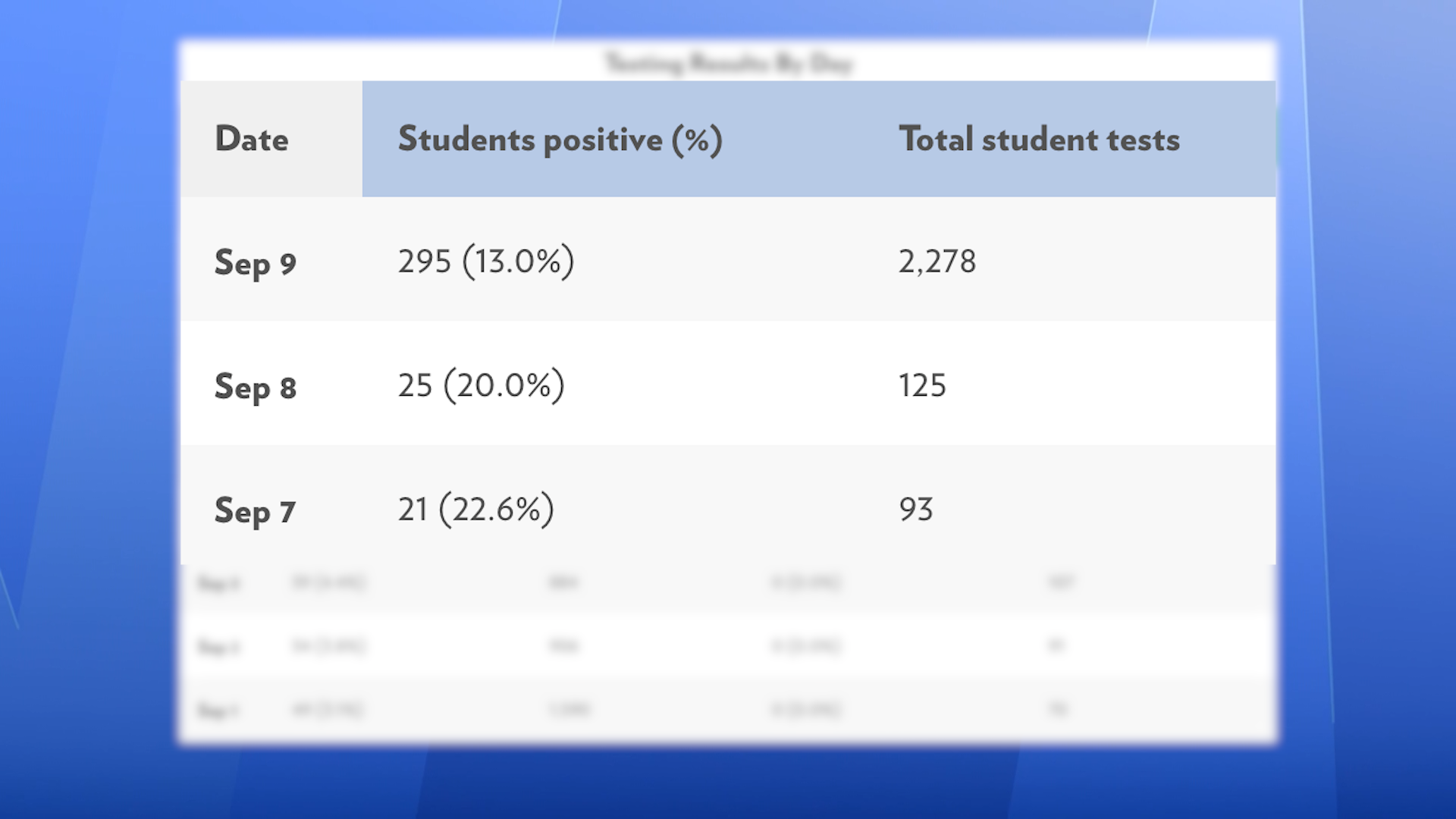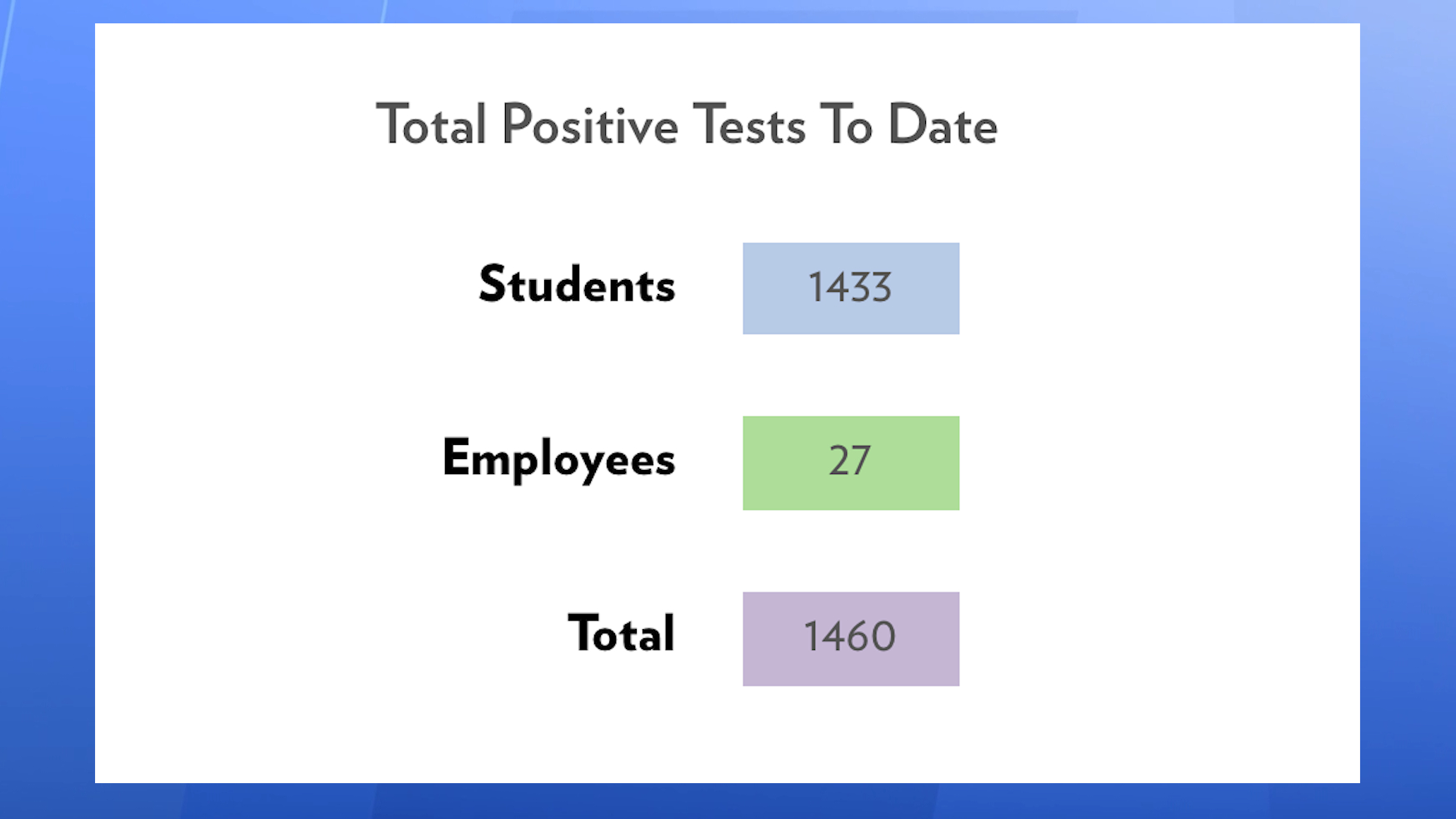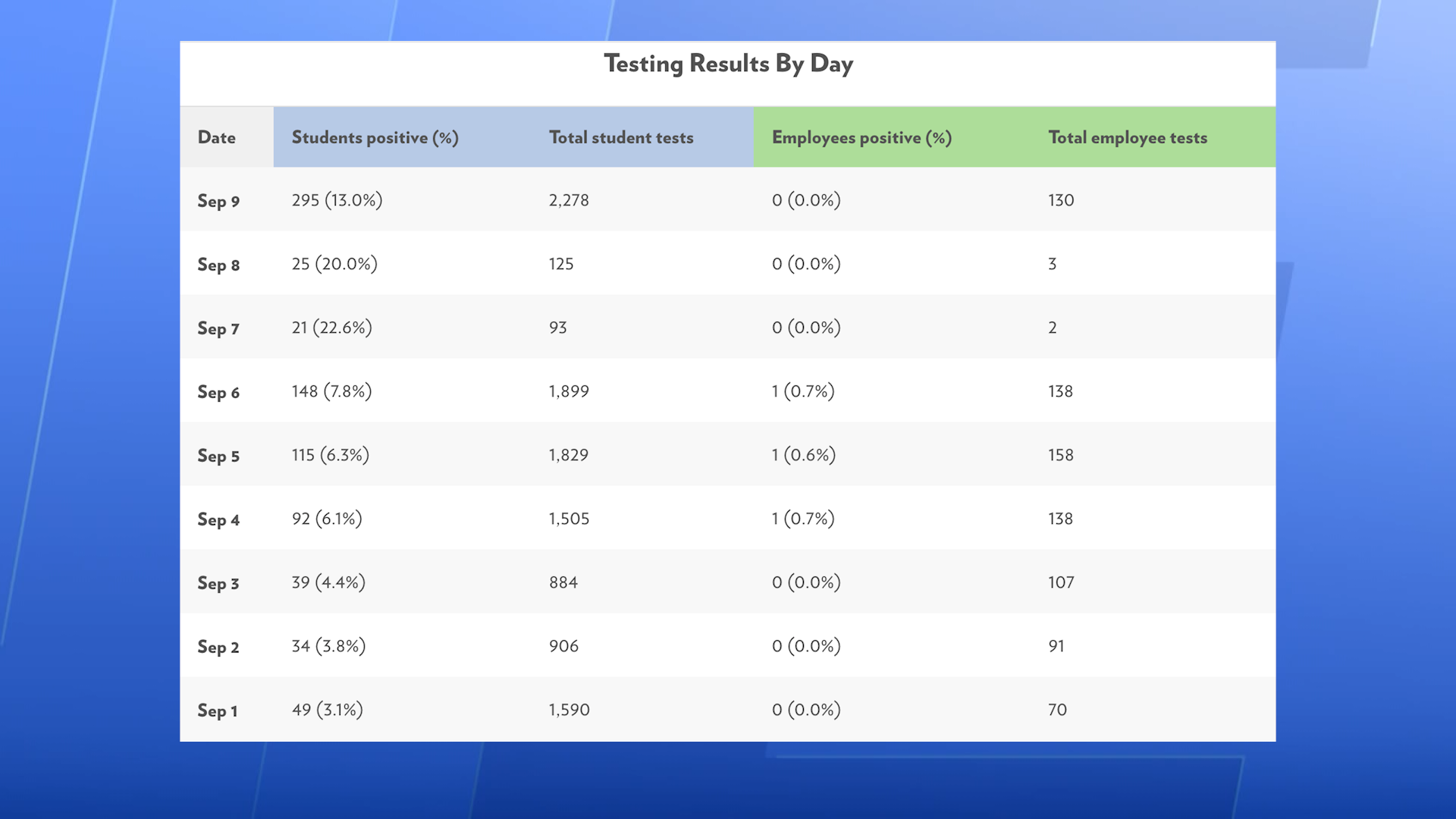MADISON, Wis. (SPECTRUM NEWS) - Local doctors are hoping the spread at UW-Madison doesn’t extend to the rest of the Madison community.
Data shows that almost 350 students tested positive for COVID-19 in the last three days of available numbers. In total, at least 1,400 UW-Madison students now have the virus.

The university has canceled all in-person classes, canceled all other in-person meetings and events, and changed some protocols like switching to takeout-only in union dining facilities.
At least a dozen fraternity houses, sorority houses, and dorms are now under quarantine.
“The more cases of COVID-19 that you have in any area, the more spread you typically see,” says UW Health chief quality officer Dr. Jeff Pothof.
Pothof is worried those students could end up spreading it to the rest of the Dane County community.

“We live in a society where we're pretty interconnected,” Pothof says. “A lot of those students need to go to different places to get their needs met, whether that's food, clothing, supplies, things like that.”
Even more concerning, that means the virus could reach more vulnerable people.
“Those other people may not be young adults, they may be service workers at restaurants or checkout clerks at stores,” Pothof says. “Those people may not do so well if they get COVID-19.”
Dr. Dave Ottenbaker is the SSM Health regional vice president of primary care services. He’s less concerned about spread from campus to the greater Madison area because the simple precautions everyone can use have a high rate of preventing infection.
“If people have good hand hygiene, wear their masks, and socially distance, they should be fine,” Ottenbaker says. “And that's what I would encourage the population of Dane County to do.”
For now, he says people who live downtown may want to be a little more cautious. He lives downtown and has been wearing a mask even when he's out riding his bike.
Earlier this week, Dane County executive Joe Parisi wrote a letter to UW System interim president Tommy Thompson and UW-Madison chancellor Rebecca Blank asking them to send students home. Parisi says it was for the safety of other Madisonians not connected to campus.

However, both doctors think that’s not a great idea.
“There's a portion of those students who are incubating the disease, they have no idea that they're actually going to get it in the next two weeks,” Pothof says. “If we take all those people and we disperse them throughout our communities in Wisconsin and communities across the country … that could very quickly make those communities hotspots.”
“To quarantine them on campus is really the best thing to do,” Ottenbaker says.
Pothof wants the quarantining on campus to make a difference. But he’s not holding his breath.
“We thought … they could buckle down and not do the things that would get us in trouble, and that didn’t work out so great,” Pothof says. “It has the potential to work, but I think all of us are a little bit hesitant to put any money on it at this point.”
The two-week restrictions on campus are set to end September 21. So far, it’s not clear what will happen after that.


